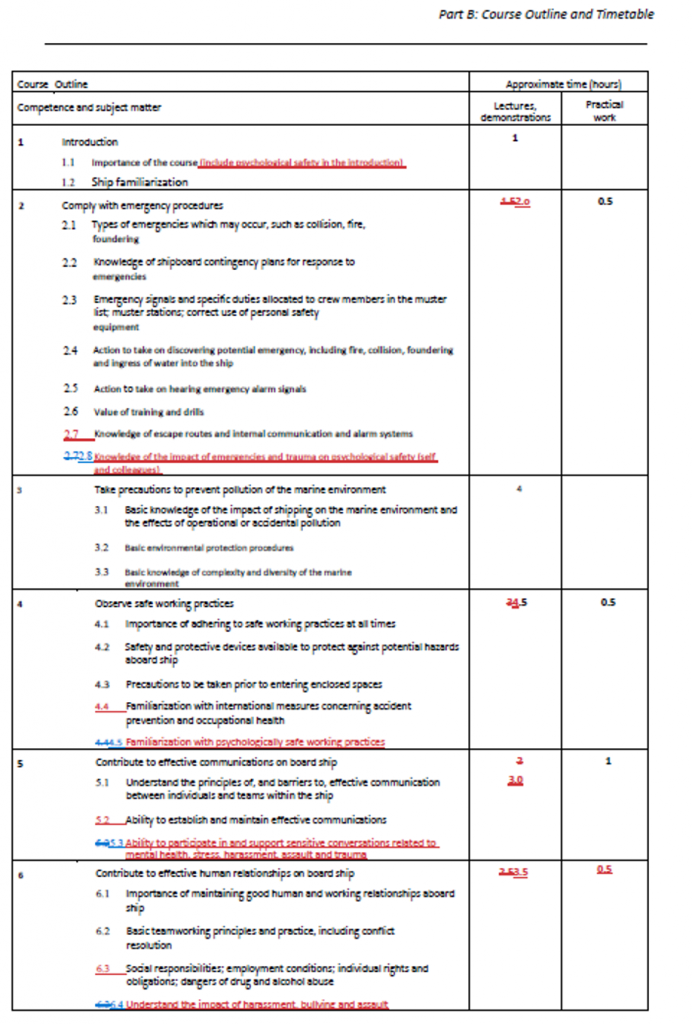Meeting Minutes: COPE° Working group on Psychological Safety and Sexual Assault and Harassment in the Maritime Sector
TUES, MARCH 15, 2022 | 6:00 AM ET
1) Welcoming Remarks
Ms. Eva Lianne Veldkamp opened the meeting thanking the participants and explaining the working group is hosted by Center for Ocean Policy and Economics – COPE°. The Northeast Maritime Institute – College of Maritime Science, created The Center for Ocean Policy and Economics this year. COPE° facilitates committed maritime government, non-government, corporate, education, science and technology experts and partners to collaborate on developing and delivering relevant actions and impactful solutions.
COPE° was developed to serve as both a driver for change, as well as a vessel for others to share ideas, collaborate, and pool resources to tackle the wicked problems present in our world today.
This working group is going to work on projects to provide solutions to build on an international framework which supports a psychologically safe workplace culture. Psychological safety will have a positive effect on operational safety and security on board ships and is essential to the successful integration of vulnerable and marginalized groups, in support of diversity, equality, equity and inclusion.
The working group will support the work outlined in document MSC105/16/4 of the IMO Maritime Safety Committee as proposed by Dominica, Turkey, Saudi Arabia, InterManager, IIMA, ICHCA International, IFSMA, and AMPP. The submission presents suggestions to amend IMO Model Course 1.21 – Personal Safety and Social Responsibility, which will be discussed by the Maritime Safety Committee in May 2022.
Its intention is to develop and deliver relevant actions and impactful solutions, using the UN framework to do the work and connect the industry to objectives.
Mr. Eric Dawicki, President and CEO of Northeast Maritime Institute and Deputy Administrator of Dominica Maritime Registry and Ms. Nancy Kartigithu, Principal Secretary, State Department for Shipping & Maritime at Government of Kenya, shared their welcoming words and added their thanks for the formation of the working group and the participation of the global representatives.
2) Introduction of the Participants
Participants of this meeting include many different people of many different parts of the world, many different backgrounds, different experiences, different expertise’s and so on. The group answered some questions relating to the subject matter and their experiences and expertise.
In Annex A a “List of participants” will be provided. Stating names and details of persons participating in the working group also indicating the governments, organizations or companies they might represent.
3) Scope of Work
Ms. Veldkamp and Mr. Dawicki explained the general goal of this COPE° working group is to explore this topic holistically. COPE° was founded to enable a broad sense of inputs from people to open up to ideas and share them, so we can make the world a better place. Within the project group, we want to provide resources to enable people to enter this community and share inputs and ideas.
They emphasized regarding the topic of this working group, the work must be values and behavior driven, and inclusive. Underscoring the importance of listening and learning, and enable that information to make change happening.
The goal is to attain the gold standard of mental health excellence for all seafarers. And letting people know that they have an organization that will support them regardless of who they are, where they are from, what God they pray to or whom they love.
The terms of reference following these goals of the working group on psychological safety, sexual assault and harassment in the maritime sector, can be used for sub-groups to focus their work and are in Annex B: “Terms of reference”.
Activities the COPE° working group will focus on will be:
- Review and amend existing IMO model course 1.21 – Personal Safety and Social Responsibility
As proposed in document MSC105/16/4, submitted to IMO Maritime Safety Committee in 2022 by Dominica, Turkey, Saudi Arabia, InterManager, IIMA, ICHCA International, IFSMA, AMPP. - Evaluate and provide training options
Designing courses on NEMO, available totally free of charge. Investigating other training options. Taking into account Minimum standards and Advanced standards. Listing out different kinds of outputs for parties to consider and opportunities for user groups. - Harmonizing best practices and guidance documents, industry resources and studies
Amongst United Nations bodies (IMO and ILO); NGO diversity manuals such as ICS, WISTA, ISWAN, BIMCO, INTERTANKO, INTERCARGO and the World Shipping Council. How do we make sure this work is easily implemented into ISM manuals, company procedures, etc. - Awareness and response
Output relevant for mariners and other maritime professionals will be shared online by means on different channels. The working group will be open to hear the voice of the industry and take information into consideration.
The first sub-group is starting to work on the IMO Model Course 1.21 on Personal Safety and Social Responsibility. The work is outlined and described in Annex C: “Activity 1 – Review of IMO Model Course 1.21 – Personal Safety and Social Responsibility.”
4) Actions and Takeaways
Participants discussed the Terms of Reference, scope of work and the general goal of this working group. Several decisions were taken, as listed below.
Meetings
- The members invited to this working group will be expected to be active and share information, learnings and support the overall objectives of the working group
- The meetings will be chaired by a representative of COPE°
- Meetings held virtually at agreed timeframes, noting different time-zones
- Meetings on an agreed basis, to address the issues identified
- General communications and announcements will be done by email
- Meetings may be requested by members as required to address matters that arise
- Meeting recordings are not to be published publicly, but remain for reference withing the group.
Documents
- Documents will be shared in a cloud-based storage, accessible to members of the working group. We will investigate an appropriate platform and make it available to members of this COPE° working group. (Teams, Slack, Discord, google docs, etc) For now, we can use a dedicated MS Teams for COPE° working group members to use.
- Public information will be shared on the website https://thecope.org/projects/
- To be transparent about the work that the group is performing, and provide the public with an update and overview of the outcomes, meeting notes will be published on the COPE° website. Additionally, will write blogposts to inform the public in an informal way. Taking into consideration personal, political and other sensitive matters that should not be made public.
- The group will maintain a list of source documents and make it available to all participants
Groups
- Future meeting of the main group be on Tuesdays at 11.00 UTC to discuss general work.
- Sub-groups will have separate meetings, with dedicated persons working on the activities discussed in the main group. Chairpersons of the sub-groups will schedule separate meetings accordingly.
- Open house sessions will be organized monthly, using live sessions as an open forum to communicate outside of the working group. The purpose of these sessions will be to share information about the progress of our group, as well as to stay open to hearing the voice of the industry and take information into consideration.
- We will start a dedicated LinkedIn group to share communication on this social media platform constructively.
5) Next Meeting
ANNEX A
List of Members and Participants
The members and participates of the COPE° Working group on Psychological Safety and Sexual Assault and Harassment in the Maritime Sector are listed below.
Please take into account the information in this list to be privacy sensitive.
ANNEX B
Terms of Reference
The COPE° Working group on Psychological Safety and Sexual Assault and Harassment in the Maritime Sector is hosted by Center for Ocean Policy and Economics, a subset of The Northeast Maritime Institute – College of Maritime Science. COPE° facilitates committed maritime government, non-government, corporate, education, science and technology experts and partners to collaborate and create drivers for change. Members of the working group will be sharing information, ideas, learnings and pooling resources in order to work on:
- developing and delivering relevant actions and impactful solutions
- drivers for change, in order to tackle the wicked problems present in our world today
- solutions to build on an international UN framework to connect the industry to objectives.
The work the COPE° working group will be driven by ethical and humanitarian based values, taking into account:
- building on a psychologically safe workplace culture in the maritime sector
- the successful integration of vulnerable and marginalized groups, in support of diversity, equality, equity and inclusion
- the issues relating to sexual assault, harassment and bullying in the maritime sector
- transparency and integrity
- supporting and honoring mariners globally
ANNEX C
Activity 1 – Review of IMO Model Course 1.21 – Personal Safety and Social Responsibility
This sub-group will be chaired by Ms Jillian Carson-Jackson. The sub-group will update the main group on their work in the next meeting.
It is proposed that the existing model course is reviewed and amended in a stepwise approach:
- Step 1 – review and update the existing model course as an incremental revision, based on the proposals identified in Annex I. develop the revised course outline and teaching syllabus for Model Course 1.21
- Step 2 – review and consider amending the priority level 4 for the model course and, as appropriate, commence the full review as soon as possible taking into account the current workload for model course review and validation.
Noting the mature nature of IMO Model Course 1.21, and the focus on amending to expand existing training on safe working practices, effective communications on board ship, and effective human relationships on board ship to include elements of psychological safety and dealing with trauma and trauma response, it is proposed that Step 1 could be initiated following agreement at MSC 105, with the draft revised model course provided to HTW9 for validation.
The focus of the informal working group will be to provide the revision and provide content to the model course.
Points to consider:
- Action in case of human emergency/accident is not well covered.
- Action in case of personal crisis is not covered.
- Advantages of shipboard community (in time of cabin internet) needs to be expanded.
- Ethnicity culture & SASH needs to be addressed.
- Should we be looking at a Basic PSSR and an Advanced PSSR for the Management team?
ANNEX I


